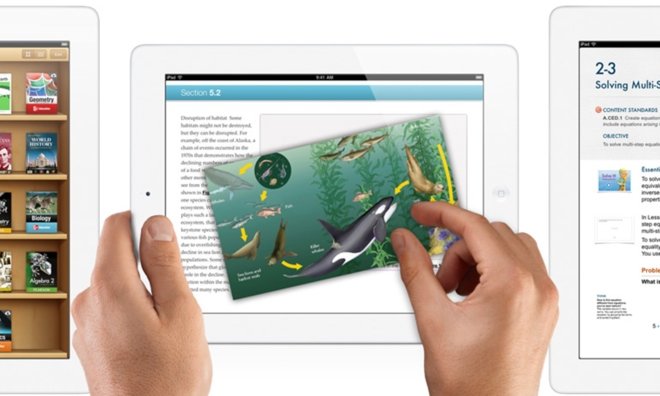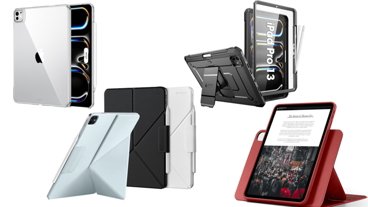LAUSD seeks multimillion-dollar refund from Apple for scrapped iPad in education program
Last updated
After officially scrapping a $1.3 billion educational technology initiative based on Apple's iPad, the Los Angeles Unified School District is reportedly demanding the company either return millions of dollars or face a lawsuit.
According to local radio station KPCC, LAUSD informed Apple that it will no longer put money toward course material provided by content partner Pearson, saying the district was "extremely dissatisfied" with the software implementation. Educators complained that Pearson's software was half-baked, contained errors and lacked lessons and promised interactive material.
"While Apple and Pearson promised a state-of-the-art technological solution for ITI implementation, they have yet to deliver it," LAUSD attorney David Holmquist wrote in a letter to Apple's general counsel. "As we approach the end of the school year, the vast majority of students are still unable to access the Pearson curriculum on iPads."
LAUSD rolled out the first phase of its now defunct Instructional Technology Initiative, also known as "iPad-for-all," in 2013 with a $30 million agreement to supply iPads to 47 seed campuses. ITI would become an ambitious $1.3 billion project hoping to provide similar technology to more than 640,000 students.
The district officially killed the initiative in December after a tumultuous start involving mismanagement and shady funding plans by former schools Superintendent John Deasy. Critics took issue with the bidding process, saying Apple and Pearson had an unfair advantage in winning the lucrative contract, claims currently at the center of an ongoing FBI investigation. Deasy ultimately resigned in October of 2014.
Teachers also faced problems implementing iPads into their curriculum, including a security breach in which students discovered they could bypass school-imposed content filters. Administrators last year opened the program up to other platforms, including Google's Chromebook and Microsoft's Surface.
 Mikey Campbell
Mikey Campbell








 Amber Neely
Amber Neely
 Thomas Sibilly
Thomas Sibilly
 AppleInsider Staff
AppleInsider Staff
 William Gallagher
William Gallagher
 Malcolm Owen
Malcolm Owen
 Christine McKee
Christine McKee










45 Comments
Look, Pearson Education is a garbage company, with garbage products. This is widely known.
Why is this Apple's fault?
What a freaking mess. And now they want Apple to foot the bill caused by their incompetence...
Weren't they the ones that screwed this deal up in the first place? Why is Apple to blame?
Maybe Apple should partner with an education company, educators and other influencers, provide technical support for content makers, and really make sure a compelling solution is found for education. Like what they did for the Medical Research community.
This project smells rotten, and likely some level of influence/corruption. I can understand why a project may choose iPad or Surface at the start (although iPad was really the only viable choice back then.) I can't fathom a reason to switch half way through an implementation *after* the seeding program's successful result; And if it wasn't so successful, why the enhanced roll out? Why is it that other schools(and universities) iPad programs work fine and this one doesn't? I definitely don't see a legitimate reason why a large scale roll out of chromebooks would take place with persons under the age of legal consent. The device's relatively high cost of ownership, heavy reliance on data, keeping personal data and documents away from the user, the small number of apps/difficulty in development and platform immaturity (not to mention regular, slowly patched, security issues.)